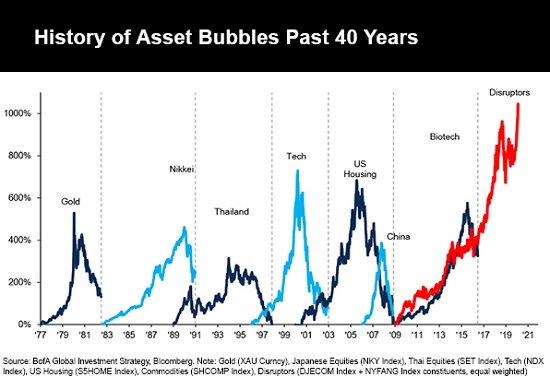As empty streets and shelves attest, people taking charge of risk has dire economic consequences.
How many cases of Covid-19 in your community will it take for you to decide not to frequent public places such as cafes, restaurants, theaters, concerts, etc? How many cases in your community will it take for you to decide not to take public transit, Uber/Lyft rides, etc.? How many cases in your community will it take for you to limit going to supermarkets and ask your boss to work at home?
One of the most unexamined aspect of the Covid-19 pandemic is the human psychology of risk assessment and fear. The default human response to novel threats such as the Covid-19 virus is denial and abstraction: it can’t happen here, it won’t happen to me, it’s no big deal, etc.
This careless denial of danger and urgency characterized the official response in China before the epidemic exploded and it characterizes the lackadaisical sloppiness of official response in the U.S.: few facilities have test kits, thousands of people who arrived on U.S. soil on direct flights from Wuhan have not been tested, confirmed carriers have been placed on flights with uninfected people, and the city of Costa Mesa, CA had to file a lawsuit to stop federal agencies from transferring confirmed carriers to dilapidated facilities that are incompatible with thorough quarantine protocols.
This lackadaisical sloppiness didn’t hinder the spread of the virus in China and it won’t hinder it in the U.S. That means each of us will eventually have to make our own risk assessments and decide to modify our routines and behaviors or not.
Hence the question: what’s your red line number? Do you stop going out to public places and gatherings when there’s ten confirmed cases in your community, or is yourred line number 50 cases? Or is it 100?
For many people, even a handful of cases will be a tremendous shock because they were unrealistically confident that it can’t happen here. The realization that the virus is active locally and can be spread by people who don’t have any symptoms shatters the comfortable complacency and introduces a chilling reality: what was an abstraction is now real.
Human psychology is exquisitely attuned to risk once it moves from abstraction to reality. Why take a chance unless absolutely necessary? For many people, the first handful of local cases will be enough to cancel all exposure to optional public gatherings: cafes, bistros, theaters, concerts, etc.
Many others will decide to forego public transit, taxis and Uber/Lyft rides because who knows if the previous fare was an asymptomatic carrier?
If you doubt this impulse to over-reaction once abstraction gives way to reality, look at how quickly market shelves are stripped in virus-affected areas. Once we understand what rationalists might declare over-reaction is merely prudence when faced with difficult-to-assess dangers, we realize that there’s a bubble not just in the stock market and Big Tech but in complacency.
Once a consequential number of people decide to avoid public places and gatherings, streets become empty and all the businesses that depend on optional public mixing–cafes, bistros, restaurants, theaters, music venues, stadiums, etc. etc. etc.– dry up and blow away, even if officials maintain their careless denial of danger and urgency.
All the jobs in this vast service sector will suddenly be at risk, along with the survival of thousands of small businesses, many of which do not have the resources to survive weeks, much less months, of a sharp decline in business.
All the official reassurances won’t be worth a bucket of warm spit. After being assured the risk of the virus spreading in North America was “low,” the arrival of the virus will destroy trust in official assurances. People will awaken to the need to control their own risk factors themselves. And as empty streets and shelves attest, people taking charge of risk has dire economic consequences.
